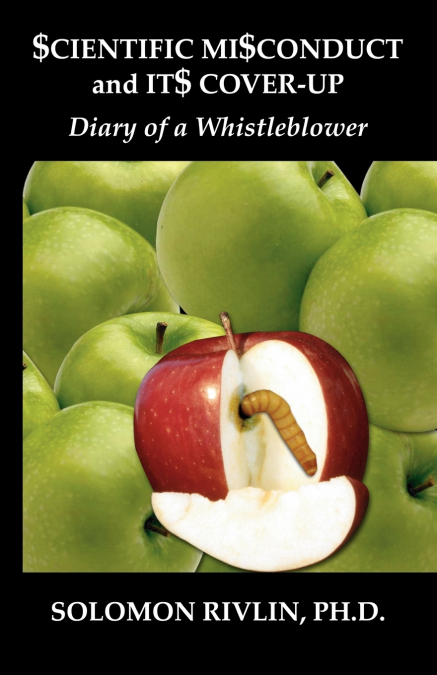
Solomon Rivlin
The book describes a true and detailed account of a scientific misconduct case involving two department chairmen in a major medical school, the whistle blowing that exposed their misdeeds, the attempts of cover-up by the university administration and the retaliatory actions of the administration against the whistleblower. The book also describes how the leadership of one of the largest scientific societies in the US has chosen not to investigate a charge of signature forgery on a Society’s form . The charge was filed against a member of the society who happened to be one of the chairmen involved in the scientific misconduct case described in the book. While experts on the topic continuously assuring the public that scientific misconduct continues to be newsworthy because it continues to be rare, no one really knows whether such rarity is due only to a few bad apples or to a successful cover-up by university administrators whose job is to protect their institution’s reputation and to assure the continuation of extramural research funding. At times when the financial stakes are very high for both the perpetrator scientist and the university that is benefiting from his research grants, the lone whistleblower finds himself even more isolated and against much larger forces, and ultimately, he/she pays a much greater price for blowing the whistle. This book thus exposes for the first time the length to which administrations of some academic institutions are willing to go to prevent the public from hearing about the misdeeds perpetrated by some of their scientists.